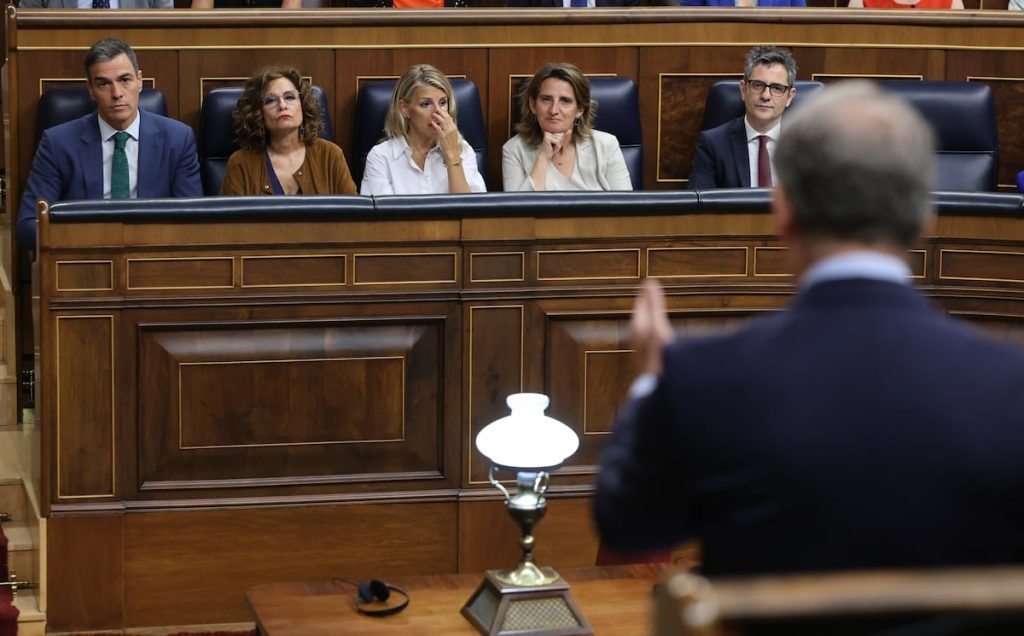The relationship between the PSOE and the PP in the Spanish Congress has been tense in recent years, with little recognition of Pedro Sánchez as the legitimate president and a blockage in the judicial system causing further strain. However, a recent agreement to renew the General Council of the Judiciary has shifted this dynamic significantly. While the public attacks between the two parties continue, privately there has been a noticeable change, with leaders from both sides acknowledging the efforts of individuals like Félix Bolaños and Alberto Núñez Feijóo in reaching a compromise. The agreement marks a turning point in their relationship, with both parties making concessions to ensure its success.
The agreement to renew the General Council of the Judiciary has been beneficial for both the PSOE and the PP, with Pedro Sánchez expressing his satisfaction at finally reaching a resolution after five and a half years. Both parties have made compromises in the agreement, with the PSOE accepting a key figure associated with the PP as a magistrate of the Constitutional Court, and the PP agreeing to a proposal that falls short of their original demands regarding the appointment of judges to the council. The government is allowing the PP to take credit for certain aspects of the agreement in order to help them sell it as a victory to their supporters, while also paving the way for further agreements to renew other key institutions in the future.
The new atmosphere of cooperation between the PSOE and the PP is expected to lead to additional agreements for the renewal of other important bodies, such as the Bank of Spain and the National Securities Market Commission. The government is optimistic about the prospect of reaching further agreements with the PP, as the quotas for party representation in these bodies have already been established in previous negotiations. The upcoming parliamentary sessions in July will be dominated by discussions related to the judicial reform agreement, with several plenaries scheduled to debate and vote on the proposed changes aimed at depoliticizing the judiciary and filling vacant positions within the Council.
The alignment between the PSOE and the PP on the issue of judicial reform has caused tension among key allies of the government, particularly the Catalan separatists, who have accused the PSOE of shifting alliances and urged them to pursue the legislature with the support of the PP. On the other hand, right-wing parties like Vox have criticized the PP for what they perceive as capitulation to the PSOE. Despite these divisions, the cooperation between the PSOE and the PP is limited to specific issues requiring bipartisan support, and there are no indications of a broader agreement on more contentious issues like regional financing reform. The overall political landscape remains unchanged, with the government relying on its coalition majority to pass legislation.
The private negotiations and public posturing between the PSOE and the PP suggest a new phase of normalization in the Spanish legislature, signaling an end to the era of exceptional circumstances. While challenges remain, such as passing routine legislation in July and managing minority government, the prospect of an early election seems unlikely. Both government and opposition parties seem to be adjusting to a prolonged legislative term, despite the inherent weaknesses in the government’s parliamentary support. The renewed recognition and engagement between the PSOE and the PP reflect a willingness to work together within the confines of their respective political blocs, ensuring stability in the Spanish political landscape for the foreseeable future.


